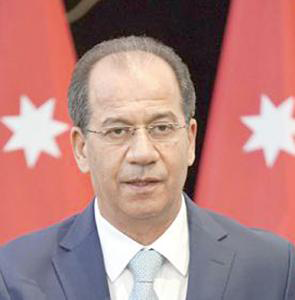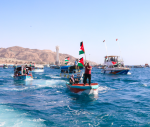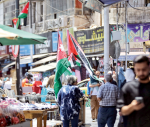You are here
UNESCO marks World Radio Day with focus on trust
By JT - Feb 13,2022 - Last updated at Feb 13,2022

Sunday marked the 11th annual celebration of HYPERLINK "https://events.unesco.org/event?id=World_Radio_Day_20221101490541&lang=1033" \t "_blank" World Radio Day, which is led by the United Nations’ UNESCO organisation (Photo courtesy of UNESCO)
AMMAN — Sunday marked the 11th annual celebration of World Radio Day, which is led by the United Nations’ UNESCO organisation.
This year’s theme is “Radio and Trust” in recognition of radio’s standing as one of the most trusted media sources around, according to a UNSESO statement.
Recent world events have eroded trust in the media in general, fueled by the circulation of false content rapidly spreading on social media, the statement said.
The power of radio has been no better demonstrated than during the coronavirus crisis, where, among other things, the medium has made it possible to ensure the continuity of learning, and to fight against misinformation, read the statement.
Even as much of the global media landscape appears to be dominated by visual and online services, the importance of radio is proved by the continued popularity of all genres of radio programming across Jordan.
Radio in Jordan has come a long way since its debut in 1956. Unlike the domestic television environment, dozens of private radio stations have emerged following the 2003 Audio Visual Law. Today, there are more than 40 licensed radio stations broadcast from across the country.
The Internet has also given rise to online broadcasting in Jordan. In 2000, AmmanNet was established as the Arab world’s first online radio station which includes Radio Al-Balad, the only independent radio station covers human rights and community-centred stories that serve local community, according to the statement.
In celebrating the day, Audrey Azoulay, Director-General of UNESCO, said: “Our trust in radio may be due to something even more profound: where images can be distorted or reproduced to the point of excess, radio establishes a more direct, more intimate relationship between speaker and listener.”
On this World Day, UNESCO joined Radio Al-Balad in arguing radio stations in Jordan to uphold independence and reliability, both in their newsrooms and on the airwaves. A special radio show broadcasts live through Radio Al Balad airwaves, will host delegates from UNESCO and public, community and commercial radios to highlightthe trust, accessibility, and long-term viability of the radio industry.
The show will also include also five on-air “Speed Workshops”. At each workshop, in 15 minutes, listeners will be guided by radio professionals to gain useful skills related to audio production and management.
World Radio Day came into being in 2011 because UNESCO’s member states recognised that radio is a powerful medium for celebrating humanity in all its diversity and constitutes a platform for democratic discourse. That power demands responsibility and accountability, and trust is key to both, the statement said.
Related Articles
AMMAN — A group of eight Jordanian community radio stations on Monday urged the Media Commission to recognise them.The non-profit radio stat
AMMAN — Minister of Government Communications Faisal Shboul on Saturday unveiled the government's initiative to amend the broadcasting and r
Despite the advancements in technology and communications, radio journalism has not lost its importance in this day and age, University of Jordan (UJ) Radio Director Mohammad Wasif said on Thursday.
















